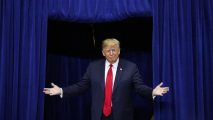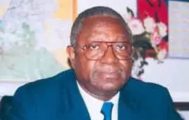Categories
Recent Posts
- Afrobeats star Davido says Nigerian culture is having a moment
- Football: Gabon forward Boupendza dies aged 28 in China
- Cameroonian youth urged to embrace hope despite multiple challenges
- Bishop of Bafoussam calls on voters to ‘make no mistake’ in this year’s election
- World Bank increases funding to Cameroon by 21%
Archives
- April 2025
- March 2025
- February 2025
- January 2025
- December 2024
- November 2024
- October 2024
- September 2024
- August 2024
- July 2024
- June 2024
- May 2024
- April 2024
- March 2024
- February 2024
- January 2024
- December 2023
- November 2023
- October 2023
- September 2023
- August 2023
- July 2023
- June 2023
- May 2023
- April 2023
- March 2023
- February 2023
- January 2023
- December 2022
- November 2022
- October 2022
- September 2022
- August 2022
- July 2022
- June 2022
- May 2022
- April 2022
- March 2022
- February 2022
- January 2022
- December 2021
- November 2021
- October 2021
- September 2021
- August 2021
- July 2021
- June 2021
- May 2021
- April 2021
- March 2021
- February 2021
- January 2021
- December 2020
- November 2020
- October 2020
- September 2020
- August 2020
- July 2020
- June 2020
- May 2020
- April 2020
- March 2020
- February 2020
- January 2020
- December 2019
- November 2019
- October 2019
- September 2019
- August 2019
- July 2019
- June 2019
- May 2019
- April 2019
- March 2019
- February 2019
- January 2019
- December 2018
- November 2018
- October 2018
- September 2018
- August 2018
- July 2018
- June 2018
- May 2018
- April 2018
- March 2018
- February 2018
- January 2018
- December 2017
- November 2017
- October 2017
- September 2017
- August 2017
- July 2017
- June 2017
- May 2017
- April 2017
- March 2017
- February 2017
- January 2017
- December 2016
- November 2016
- October 2016
- September 2016
- August 2016
- July 2016
- June 2016
Featured
 Burkina Faso: Where vision meets discipline
Burkina Faso: Where vision meets discipline  Prosecution of journalists in Cameroon: European Parliament says enough red flags have been ignored
Prosecution of journalists in Cameroon: European Parliament says enough red flags have been ignored  1982-2025: How long will Biya hang on?
1982-2025: How long will Biya hang on?  How Biya and Archbishop Nkea protected the sanctity of the family in Cameroon
How Biya and Archbishop Nkea protected the sanctity of the family in Cameroon  October Presidential Election: Will 92-year-old Biya be re-elected?
October Presidential Election: Will 92-year-old Biya be re-elected?
Most Commented Posts
 4 Anglophone detainees killed in Yaounde
4 Anglophone detainees killed in Yaounde
18 comments Chantal Biya says she will return to Cameroon if General Ivo Yenwo, Martin Belinga Eboutou and Ferdinand Ngoh Ngoh are sacked
Chantal Biya says she will return to Cameroon if General Ivo Yenwo, Martin Belinga Eboutou and Ferdinand Ngoh Ngoh are sacked
13 comments The Anglophone Problem – When Facts don’t Lie
The Anglophone Problem – When Facts don’t Lie
12 comments Anglophone Nationalism: Barrister Eyambe says “hidden plans are at work”
Anglophone Nationalism: Barrister Eyambe says “hidden plans are at work”
12 comments Largest wave of arrest by BIR in Bamenda
Largest wave of arrest by BIR in Bamenda
10 comments
Latest Tweets
Featured
-

Afrobeats star Davido says Nigerian culture is having a moment
-

Football: Gabon forward Boupendza dies aged 28 in China
-

Cameroonian youth urged to embrace hope despite multiple challenges
-

Bishop of Bafoussam calls on voters to ‘make no mistake’ in this year’s election
-

World Bank increases funding to Cameroon by 21%
-

Ukraine: Trump blames Zelensky for starting war after massive Russian attack
-

Minister Obi Eta Jerome’s death – What do we know?
© Cameroon Concord News 2025
9, January 2017
Ivory Coast: Prime Minister resigns along with his cabinet 0
Ivory Coast Prime Minister Daniel Kablan Duncan has resigned along with his cabinet amid political tensions in the West African country. “I have tendered my resignation and that of the government,” Duncan said Monday, two days later than he was expected to step down based on the standard procedure for changing the government in the country.
Duncan made the resignation announcement after a meeting with President Alassane Ouattara, who kept hold of his majority in the December 18 parliamentary elections. However, the government was expected to resign by Saturday to give leeway to a new government which could allow the implementation of measures contained in a new constitution, signed by Ouattara in November.
Ivory Coast’s presidency announced that Ouattara had accepted Duncan’s resignation. The two-day delay in the announcement of the government’s resignation came after a group of dissident army soldiers took over army bases in cities across Ivory Coast, demanding bonus payments. The government then reached an agreement with the army for the revolt to end. Reports said former premier and current Parliament Speaker Guillaume Soro was behind the mutiny as he is believed to be seeking the post of premiership or vice presidency. Some also said that the revolt could have been masterminded by Ouattara.
State employees also began a five-day strike on Monday, demanding that the government scrap pension cuts and another plan to increase the retirement age from 55 to 60. Ivory Coast, the world’s top cocoa producer, is West Africa’s largest and most prosperous economy.The French-speaking country emerged from nearly a decade of short wars and a protracted crisis in 2011. However, the factionalized, ill-disciplined military and increasing political divisions have sparked fresh concerns about the state of security in the country and how the government could continue to realize its economic objectives in the future.
Presstv